Finally, it was time for the defence and the defence party! Yesterday I presented my research and the content of my thesis in front of an audience. After the presentation, it was time for the opponent, Dr Craig Melville from the University of Glasgow, to lead the questioning and discussion. He asked tricky but good questions. I was very, very happy with the opponent, but after two hours of questioning in English, I was still exhausted...
Table of contents
How does a defence take place?
How does a defence work? Yes, it is different in different countries, and also different at different universities. In Sweden, you defend your thesis in front of an audience (colleagues, other researchers, students, family and friends). Here, at Karolinska Institutet in Stockholm, it goes something like this:
- The President presents all
- Opponents make a short presentation of the research area
- Doctoral students present their research
- Opponents for a discussion with doctoral student, by asking critical questions about the research
- Board of examiners (three external researchers) ask questions
- audiences may ask questions
- The debate is closed and grading committee goes into a private room to confer
- Board of examiners comes out and announces whether the doctoral student has been recognised.
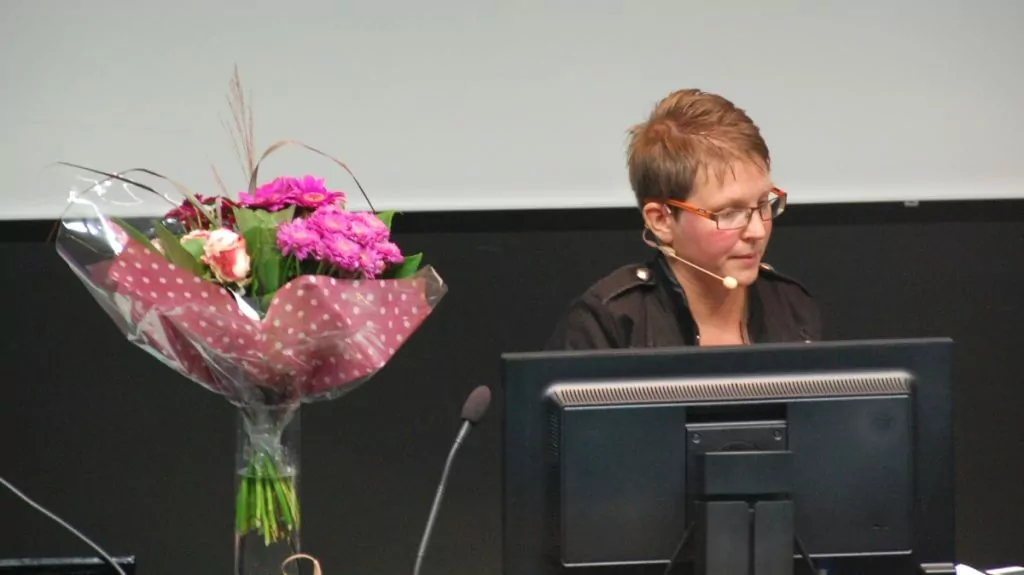
Can you fail?
In theory, you can fail here, but hardly in practice. The examining committee receives the research well in advance of the defence and can then recommend or advise against the defence. If it is not up to standard, it should be stopped. before. So why the defence? Well, you have to prove that you are actually the one who wrote the content of the thesis and that you understand and can reflect on it.
Hearing at the Dissertation
When the hearing of the opponent was finished, the examining committee and the audience asked a few more questions about my performance. research and the content of the thesis in front of the audience, and then it was over. All in all, the hearing probably took three hours.
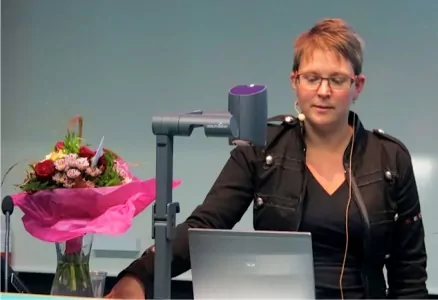
Decision of the Board of examiners
The examining committee conferred for a little while after my defence and then came out and announced that I had passed. Everything was finally complete after four years of research studies ... Time for bubbles and mingling! Of course, it felt great, but it's also a bit hard to understand.

Disputation Festival
In the evening after my defence, we had invited those closest to me (the supervisors, the research group, the opponent, family and the closest friends) to a defence party down here in the marina. We had booked a very nice room with windows facing the water and ordered Lebanese food from the restaurant Libaneza in Sundbyberg.
It was a really, really nice defence party! There were several speeches and lots of fantastic gifts. In addition, my really wonderful colleagues sang a song for me that they had composed ... so much fun! Today I am completely exhausted. Defending a thesis is really a tension from morning to night, I can promise you that. But it is also very fun! And what a lot of food and wine we have left! We will be eating Lebanese food for several days ...

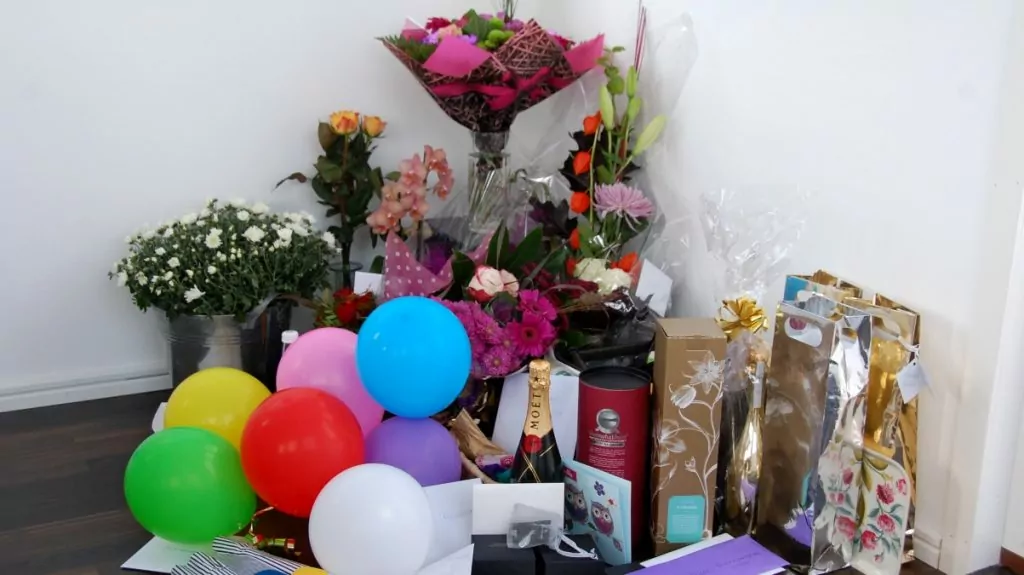
Doctorate - what happens now?
Many people ask what happens now, when my defence and defence party is over and I am no longer a doctoral student - and this is a relevant question! Many doctoral students have a 4-year doctoral position that ends after the defence. That's not really the case for me. I have always had a permanent position in the county council, but on the other hand, we are planning to go on a long trip now ...
I am employed by Stockholm County Council, where I work in public health. I have been on a 60 per cent leave of absence to do a PhD at Karolinska Institutet, but now I will return to my full-time position. Well, for a little while. As of 1 December, I have taken a full-time leave of absence because we are going to travel ...
The reason we want to go on a long trip now is of course because it's something we've been dreaming about for a long time. It's not easy to leave for a year, and you have to find the right opportunity. When I was doing my PhD, it was of course impossible. Now we feel that we can take the opportunity, and we don't want to miss it!
And then what? To be honest, I have no idea, but the primary plan is to go back to my job. I work in a changing organisation where different public health missions land in our lap, so new things can happen all the time. Now that I have completed my PhD, there are also opportunities for better pay and more interesting work. Another possibility is to apply for funding to continue research. But as I said, first we travel, then I think about that ...
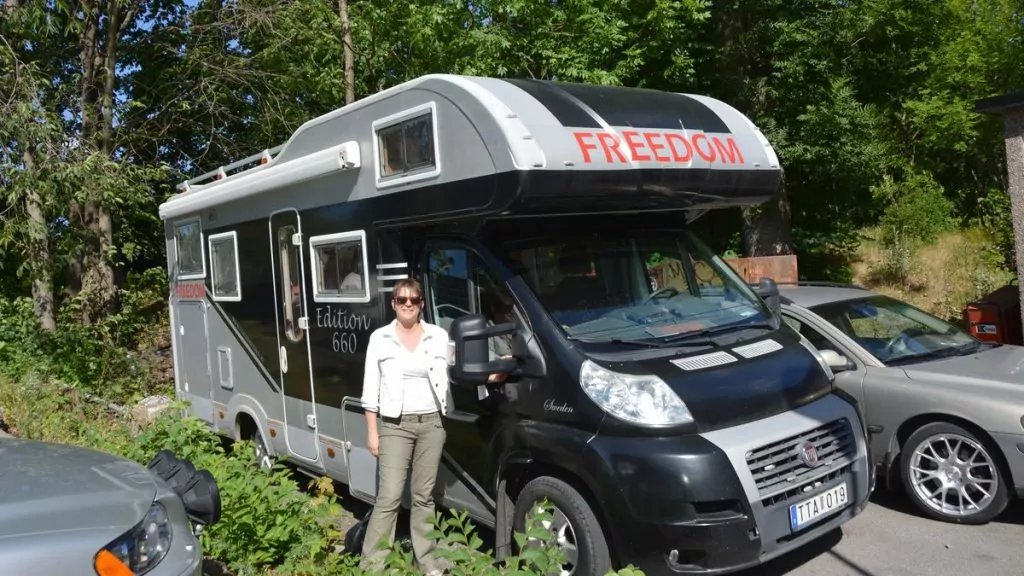


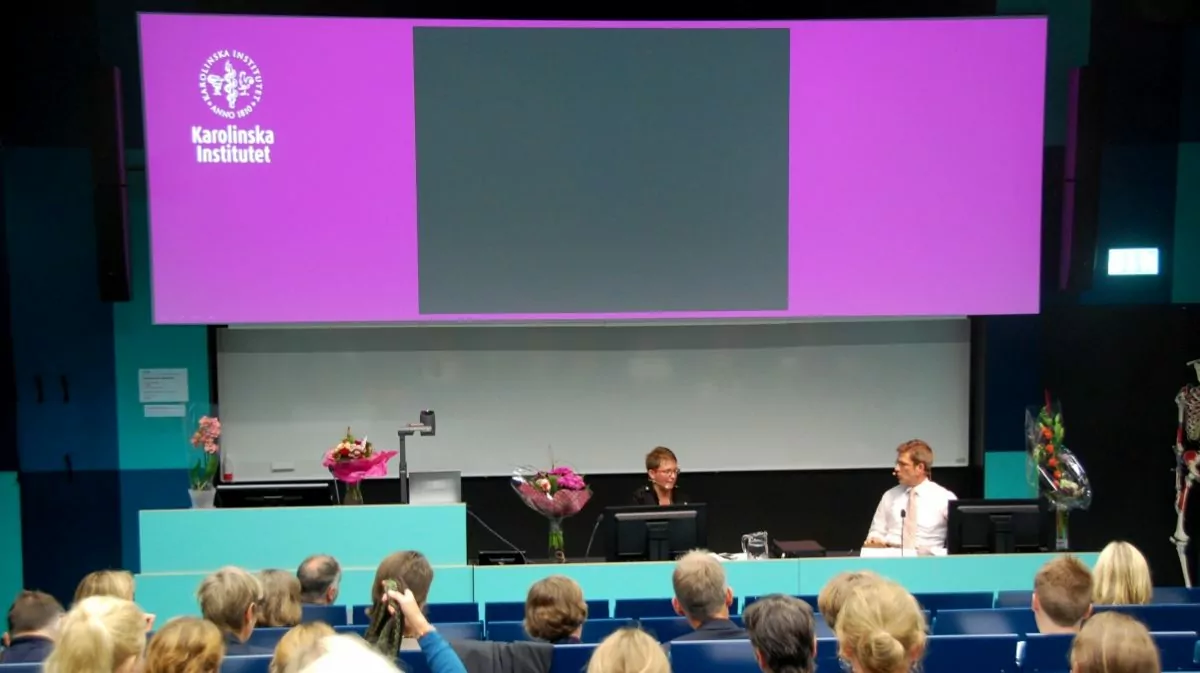












Ladies Abroad says:
Congratulations to you! I haven't done a doctorate myself, but I have several friends who have done so and have attended their defence. And without knowing the subject, you realise that the opponent's questions are often really difficult.
12 September 2014 - 12:39
Lennart says:
CONGRATULATIONS!
12 September 2014 - 12:42
Alexandra says:
Congratulations to you!
12 September 2014 - 12:43
ActiveDays says:
Great! Congratulations!!!
12 September 2014 - 13:02
Anki says:
Wonderful!
Congratulations!
12 September 2014 - 13:13
Ditte says:
Congratulations to you, Dr Bergström! It's great that I was able to listen in. I can really understand that you were completely exhausted after both your wonderful presentation and the actual hearing of the opponent. In addition, questions from the examining committee and the audience.
Three hours of hard thinking, an amazing achievement.
And yes, the opponent was both very knowledgeable (I've Googled a bit) and asked good questions. In addition, he was very calm and seemed genuinely interested in your thesis.
I'm glad you're done and that it was a great party.
The cake that Peter ordered was very nice.
We'll be in touch when things have settled down and you've had some rest. Mail is coming!
Wishing you a nice and restful weekend!
12 September 2014 - 13:40
Aila says:
Congratulations doctor...
12 September 2014 - 14:00
Saija says:
Congratulations! 🙂
12 September 2014 - 14:42
Role o Carina says:
There was the reward for all the hard work !!!
A big congratulations, you are the best!!!
Take care/Kram
12 September 2014 - 14:58
Mr Steve says:
Congratulations, an impressive achievement! Now you might even give yourself some extra time to enjoy yourself before your next project.
12 September 2014 - 15:21
Anonymous says:
Congratulations on a successful defence
Mv
Nisse
12 September 2014 - 15:57
Mr Nils-Åke Hansson says:
Congratulations on a successful defence
12 September 2014 - 15:58
Renate's travels says:
Congratulations! 😀
12 September 2014 - 16:09
BP says:
Big, big CONGRATULATIONS Dr Helena. I am extremely impressed and proud of you:-)
12 September 2014 - 16:13
Ninni, Henrik and the Hjulius motorhome says:
Congratulations!!!
12 September 2014 - 19:47
Veiken says:
I tip my hat and congratulate you! Superbly well done. 🙂
12 September 2014 - 19:51
admin says:
BIG THANK YOU for all the great congratulations!!!
Ladies Abroad, well, it's kind of the opponent's job to raise everything that can be questioned and discussed... so it's often tough!
Ditte, yes, I thought the opponent asked the questions in a good way. It's great that you were there!
Steve, let's try to get some rest, shall we?
😉
12 September 2014 - 20:14
Anna Stouvenel says:
CONGRATULATIONS!!! when I am a little less tired myself, I will read your thesis with interest because I think it hits the nail on the head of my profession.
12 September 2014 - 20:28
Robin says:
Congratulations from us again! 😀
12 September 2014 - 22:15
Anna says:
Congratulations!
12 September 2014 - 22:23
Steel City Anna says:
Great, finally over! Congratulations!
13 September 2014 - 0:02
Henny says:
I join the chorus of congratulations. have a great weekend!
13 September 2014 - 7:57
admin says:
Anna Stouvenel, thank you! And then of course I am curious about what you work with...??
And THANK YOU for all the other great congratulations!!!
13 September 2014 - 10:06
The travel dream says:
Congratulations! Great job!
13 September 2014 - 11:38
Deciree says:
Congratulations to you Helena:)
13 September 2014 - 17:41
Joanna says:
Congratulations!!!
13 September 2014 - 17:58
scottish moments says:
Big, big, big congratulations!
13 September 2014 - 20:20
Pia says:
Congratulations! I've been to several defence parties and am always impressed by what a huge achievement it is!!!!
14 September 2014 - 10:51
Matts Torebring says:
Congratulations!
It must feel wonderful.
14 September 2014 - 18:47
Katarina Wohlfart says:
Well here was the answer to the question I asked in the second post. Looks like it went like clockwork! 🙂
15 September 2014 - 23:04
Ulla & Torgny says:
Congratulations Dr Bergström......now it's done!
Hugs and good luck in the future!
15 September 2014 - 23:16
Inga M says:
CONGRATULATIONS, CONGRATULATIONS! It's fantastic to be finished with both the thesis and the boat. Now life can play again! But doesn't it feel a bit disappointing in a way that so much work is finished so quickly. Even though it was a couple of hours of questioning.
18 September 2014 - 13:50
admin says:
THANK YOU again for all the great congratulations!
Katarina, yes, it went well. Even though I was exhausted...
😉
Inga M, yes I understand what you mean! Several have said that it can feel like that. But we have some continuation projects going on and I'm going to go out and lecture a lot, so it doesn't feel completely finished anyway... even if the "studies" themselves are....
😉
18 September 2014 - 14:02